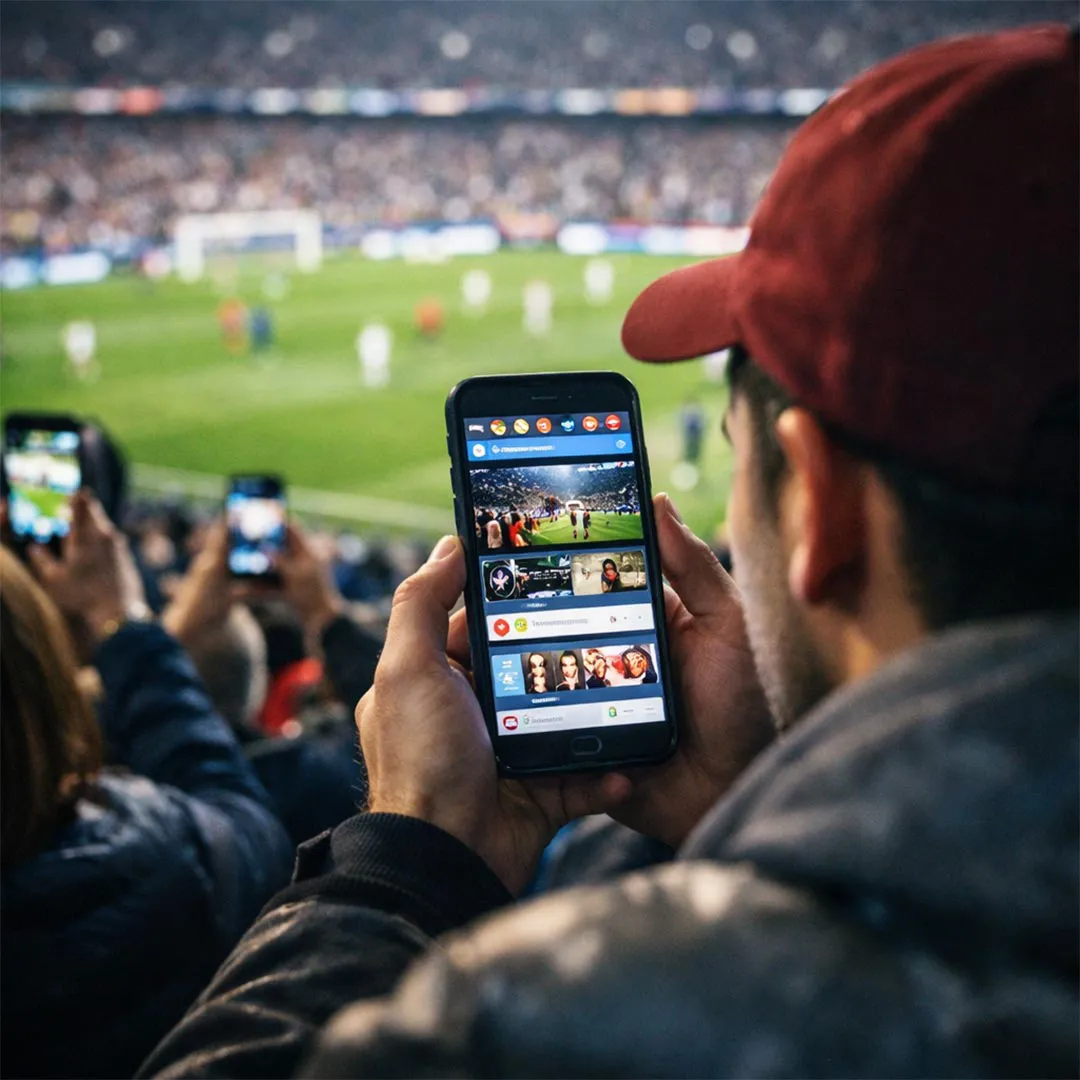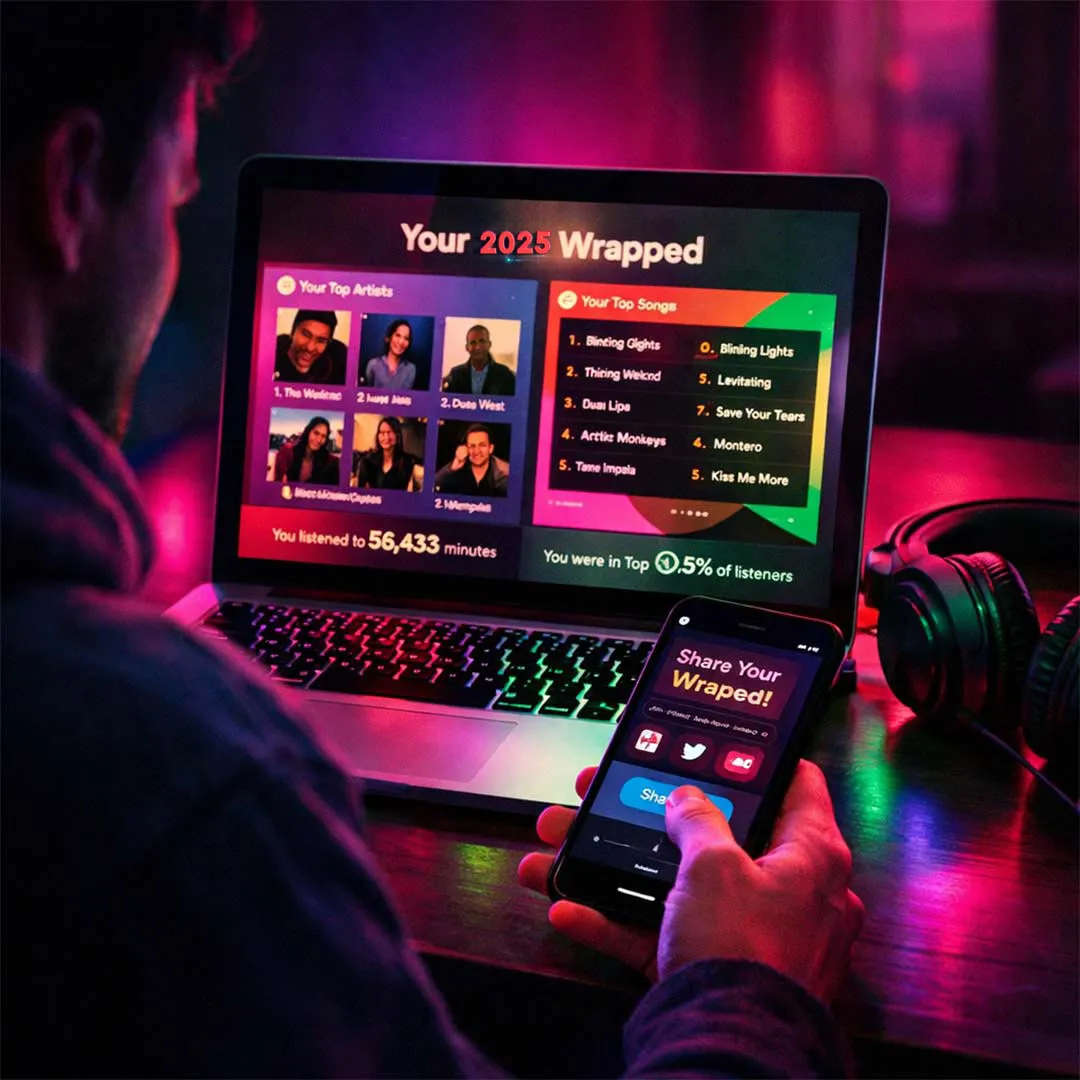
Part 2: Meta Orion Glasses – A (r)evolution for marketing
4. October 2024
Die Meta Orion Glasses bieten bahnbrechende Möglichkeiten in Augmented Reality (AR) und Unterhaltung. Zudem eröffnen sie völlig neue Perspektiven für das Marketing der Zukunft. Durch die Verbindung von AR und künstlicher Intelligenz (KI) will Meta die Interaktionen zwischen Marken und Verbrauchern grundlegend verändern. In diesem zweiten Teil werfen wir einen genaueren Blick darauf, wie die Orion-Brille das Marketing revolutionieren könnte. Außerdem zeigen wir, welche Anwendungen in naher Zukunft möglich sind.
Personalisierte Kundenerlebnisse durch AR
Eine der vielversprechendsten Anwendungen der Orion-Brille im Marketing ist die Schaffung interaktiver und personalisierter Kundenerlebnisse. Marken können digitale Inhalte direkt in die reale Umgebung der Nutzer einblenden. Dadurch entstehen völlig neue Formen der Interaktion. Beispielsweise können Kunden beim Schlendern durch ein Geschäft personalisierte Produktempfehlungen und Sonderangebote erhalten. Auch visuelle Produktvorführungen wären über die Brille möglich. Das physische Einkaufserlebnis würde sich in ein hybrides, digitales Erlebnis verwandeln. Soziale Medien, Instant-Bewertungen und KI-generierte Vorschläge basierend auf Nutzer-Vorlieben werden dabei nahtlos integriert.Die Integration von AR in den Einzelhandel hat das Potenzial, den „Point of Sale“ auf eine völlig neue Ebene zu heben. Kunden werden in Zukunft Produkte testen können, die nicht physisch im Laden vorhanden sind, indem sie durch die Brille digitale Kleidung oder Accessoires auf ihrem Körper visualisieren. Auch Try-before-you-buy-Erlebnisse werden durch AR erleichtert – etwa beim Kauf von Möbeln, wenn Nutzer sehen können, wie ein Sofa in ihrem Wohnzimmer aussehen würde, ohne es tatsächlich kaufen zu müssen. Diese Erlebnisse machen den Einkaufsprozess immersiver, überzeugender und oft auch effizienter, was zu einer höheren Conversion-Rate führen könnte.
Hyper-relevante, kontextbasierte Werbung
Ein weiterer revolutionärer Aspekt der Orion-Brille im Marketing ist die Möglichkeit kontextbasierter, dynamischer Werbung. Stellen Sie sich vor, Sie besuchen eine Stadt und erhalten durch die AR-Brille Echtzeit-Infos zu Restaurants oder Geschäften in Ihrer Nähe. Auch Veranstaltungen, die auf Ihre Interessen oder Ihr vorheriges Kaufverhalten abgestimmt sind, können angezeigt werden. Diese hyper-targeted Werbung ist viel relevanter und ansprechender als herkömmliche Online-Werbung. Sie basiert sowohl auf dem aktuellen Standort des Nutzers als auch auf dessen persönlichen Vorlieben.Ortsbezogene Anzeigen könnten lokale Geschäfte oder Touristenattraktionen direkt in den Sichtbereich des Nutzers projizieren, sobald er vorbeigeht. Marken könnten zusätzlich AR-basierte Gamification-Strategien verwenden, um Nutzer interaktiv einzubinden. Durch Werbeaktionen oder Schatzsuchen treten sie spielerisch mit der Umgebung und den Marken in Kontakt. Diese Verschmelzung von Marketing und Unterhaltung bringt nicht nur Spaß in den Werbeprozess, sondern steigert auch die Markenbindung. Kunden werden aktiver und spielerischer in die Marketing-Kampagnen einbezogen.
Freihändiges Einkaufen durch neuronale Interfaces
Die Orion-Brille geht jedoch noch einen Schritt weiter. Das neuronale Interface-Armband (EMG) ermöglicht es den Nutzern, mit Content zu interagieren, ohne ein physisches Gerät zu berühren. Diese freihändige Interaktion könnte das Einkaufserlebnis drastisch verändern. Nutzer können durch Gesten Produkte durchsuchen, auswählen und in Echtzeit kaufen – ganz ohne Smartphone oder Laptop. Diese Art der Steuerung eröffnet nicht nur eine neue Art des Shoppens. Sie könnte auch die Effizienz und den Komfort im E-Commerce grundlegend verbessern.Stellen Sie sich vor, Sie könnten durch eine einfache Geste Produkte in einem Online-Shop durchsuchen, Bewertungen anzeigen lassen und den Kauf abschließen. All das wäre nur durch minimale Muskelbewegungen möglich, die das EMG-Armband erfasst. Diese Form der KI-gesteuerten Benutzeroberfläche bietet ein nahtloses, schnelles und personalisiertes Einkaufserlebnis. Es geht weit über die aktuellen Möglichkeiten von Touchscreens oder Sprachsteuerung hinaus. Marken haben dadurch die Chance, Kunden nicht nur durch Inhalte zu beeindrucken, sondern auch durch die Art, wie diese Inhalte erlebt und genutzt werden.
Herausforderungen auf dem Weg zur Marktreife
Obwohl die potenziellen Anwendungen der Orion-Brille im Marketing beeindruckend sind, gibt es noch technische Hürden. Meta muss diese überwinden, bevor die Technologie massentauglich wird. Eine der wichtigsten Herausforderungen ist die Verbesserung der Auflösung des Sichtfeldes. Auch die Verlängerung der Akkulaufzeit spielt eine zentrale Rolle. Da die AR-Erfahrung stark von visuellen Elementen abhängt, muss Meta sicherstellen, dass Bildqualität und Komfort der Brille den hohen Erwartungen der Nutzer gerecht werden.Trotz dieser Hürden besteht kein Zweifel, dass die Verknüpfung von AR und KI enormes Potenzial hat. Sie könnte das digitale Marketing und den E-Commerce in den nächsten Jahren stark verändern. Wenn Meta es gelingt, die technologischen Barrieren zu überwinden, könnte die Orion-Brille bis 2027 einen bedeutenden Einfluss haben. Sie könnte die Art und Weise revolutionieren, wie Marken und Verbraucher miteinander interagieren.
Die (R)evolution des digitalen Marketings
Mit der Einführung der Orion-Brille müssen sich Marken und Werbetreibende auf eine neue Art der Kundeninteraktion vorbereiten. Das traditionelle digitale Marketing, das auf Bildschirme und Klicks setzt, wird sich verändern. Es wird sich zu einer immersiven und interaktiven Form entwickeln, die reale und virtuelle Erlebnisse kombiniert. Dies erfordert neue Marketingstrategien mit einem klaren Fokus auf Erlebnismarketing. Der Schwerpunkt liegt darauf, wie Kunden Markeninhalte in ihrer Umgebung wahrnehmen und erleben.Zudem wird die Personalisierung im Marketing eine noch größere Bedeutung erlangen. Mit der Fähigkeit, individuelle Empfehlungen in Echtzeit durch AR zu geben, können Marken noch gezielter agieren. KI-gesteuerte Werbung ermöglicht es, die Bedürfnisse der Kunden genauer vorherzusagen und sofort darauf zu reagieren. Die Orion-Brille wird es erlauben, jedem Kunden maßgeschneiderte Inhalte zu liefern, basierend auf seinem aktuellen Kontext. Ob es der Ort ist, an dem er sich befindet, oder seine jüngsten Käufe – alles wird personalisiert.
Conclusion
Die Orion-Brille markiert den Beginn einer neuen Ära für das digitale Marketing. Durch die Kombination von Augmented Reality, KI und neuronaler Steuerung entstehen für Marken völlig neue Möglichkeiten der Kundeninteraktion. Ob durch personalisierte Produktempfehlungen im Geschäft, kontextbasierte Werbung oder freihändiges Einkaufen – die Orion-Brille hat das Potenzial, unsere Wahrnehmung von Markeninhalten radikal zu verändern.Mit Blick auf 2027 und darüber hinaus sollten Marken ihre Marketingstrategien bereits jetzt anpassen. Nur so können sie das volle Potenzial der AR-Technologie nutzen. Die Orion-Brille ist nicht nur ein technisches Gadget, sondern ein Gamechanger, der das Marketing der Zukunft prägen wird.
Our blog
Latest news
With our blog, you are always close to our work, our current projects and the latest trends and developments in web and print.
Any questions?





